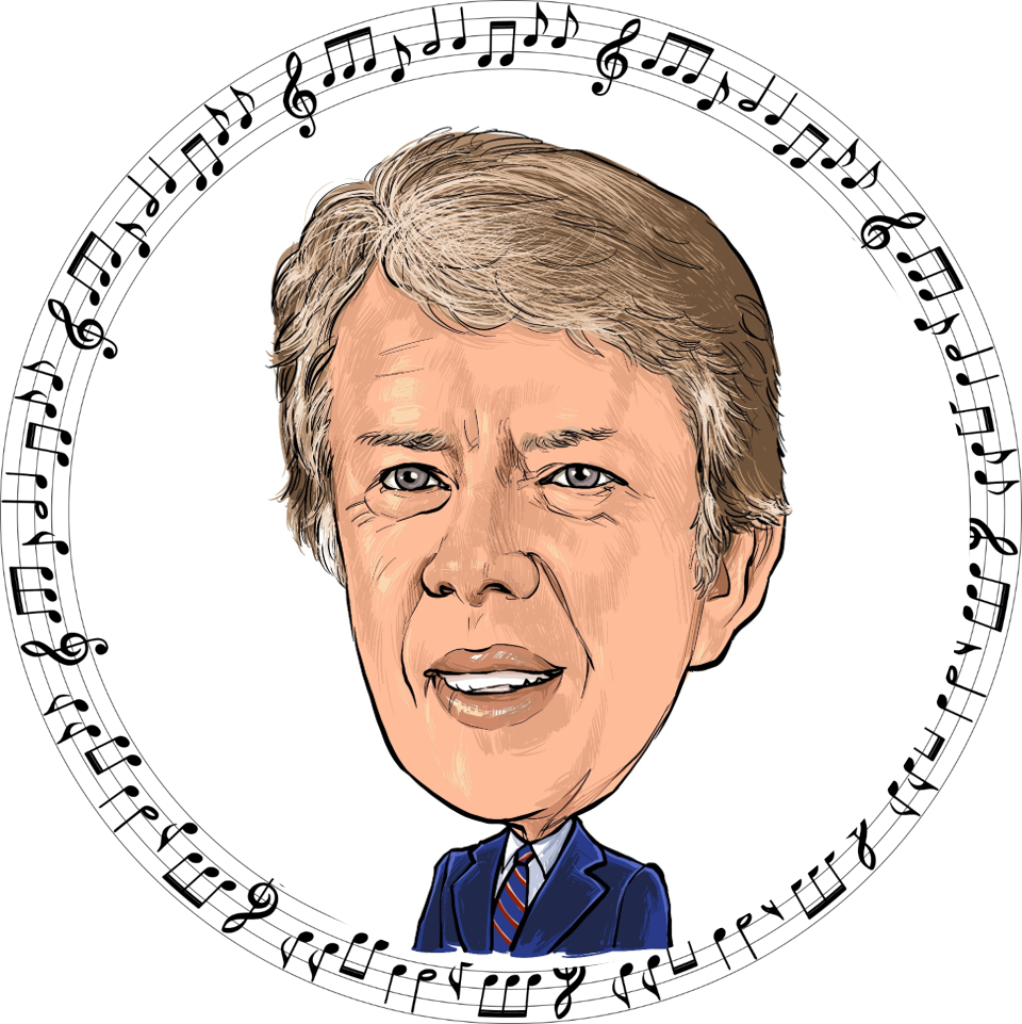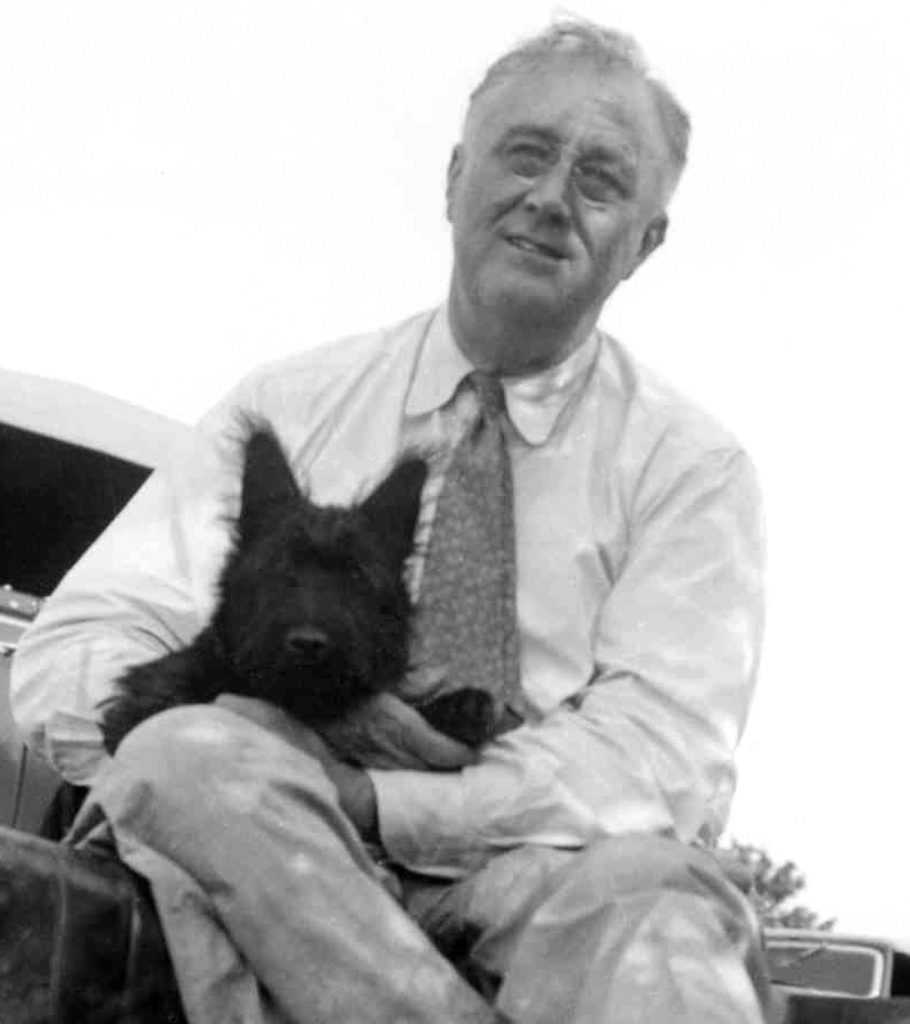I 
After a day like yesterday, it can be challenging to put our disrupted lives into perspective. Somehow, COVID didn’t dominate the headlines for a day. Instead, our focus was on Washington, D.C. and the breach and desecration of our sacred government buildings – and the institutions they represent.
While I was watching along with most of you, I couldn’t help but flash back on a CNN documentary I watched this past weekend. If you haven’t seen it, Jimmy Carter: Rock & Roll President, isn’t just a great production. But it’s a window into the life of a very different Chief Commander in our nation’s history.
I was a twentysomething when Carter took office in 1976, a lot more focused on my radio career and the drama in my personal life than what was happening in the nation’s capitol in the post-Watergate Era.
Carter was perceived even back then as an odd duck – a modest, soft-spoken, Southern peanut farmer without an ounce of bombast. The fact that he was defeated four years later by the dynamic, sauntering bigger-than-life charisma exuded by Ronald Reagan was no surprise. Back then, Carter may have been thought of as well-meaning, but largely ineffective. When the Iran Hostage Crisis devoured what was left of his presidency, many Americans were ready for the macho, charming, and dynamic swagger of Reagan.
It’s not fun to go down in history as a one-term president as we’re witnessing right now every day and night on cable TV and on Twitter. But instead of simply designing his library and sailing off into the Georgia sunset, Jimmy Carter has perhaps had the most productive post-Presidential career in U.S. history.
He has won the Nobel Peace Prize, he and his wife, Rosalynn, have worked tirelessly with Habitat For Humanity, has been a tireless of promoter of human rights, and has served as a respected elder statesman since leaving the Oval Office.
But the part of Jimmy Carter’s personality that has been lost in the annals of American history was his love for music – and the ways in which he tactically used it to accomplish his goals.
The doc focuses on his early love of the Allman Brothers Band – especially the mercurial Gregg – during their formative years, and their superstar phase in the early ’70s. And the Carters opened the White House doors to other rockers, like Crosby, Stills, Nash, & Young, as well as Bob Dylan, all of whom “stopped by” to set a spell or perform at one time or another during his term of office.
But the doc’s title is deceiving. Beyond Rock, Carter loved all sorts of music, welcoming a diverse roster of performers into the White House environment again and again. In Carter’s world, he saw music as a way of softening up foreign leaders, breaking down language and racial barriers, and a way to bring people together.
The CNN special highlights a diplomatic visit between Carter and the Chinese ambassador to Nashville of all places to enjoy the music and to break down the barriers that existed between the two super powers. And Bono explains how Carter became the first U.S. President with whom he connected with, helping to pave the way for his humanitarian efforts over the years.
The doc also reveals Jimmy Carter’s love of Country, especially featured icons like Johnny Cash and Willie Nelson. And Willie has a prominent footprint in the CNN special, always there for Carter during some of his biggest moments.
But then there was also the Carters love for Jazz, Gospel, Soul, and Folk – personified by Dizzy Gillespie, Mahalia Jackson, Aretha Franklin, and Paul Simon – all of whom performed at one time or another for the Carters and their guests.
If you go back into American history, however, Carter wasn’t unique in his love for music and its integration with his presidency. Put your party politics aside – the Kennedys, Reagans, Bushes (especially 43), and Obamas all showcased the talents of musicians throughout their terms in office, as extensions of their administrations – and themselves. Many others – from Nixon to Truman to Millard Fillmore all made music part of the soundtracks of their time at 1600 Pennsylvania Avenue.
 One of the things you come away with from the Carter doc is how music has always been the great equalizer. It sands down even the roughest exteriors and personalities. It humanizes even the most important executive in the land, and is a window into the president’s soul. It is something to be shared with others, no matter how important our jobs.
One of the things you come away with from the Carter doc is how music has always been the great equalizer. It sands down even the roughest exteriors and personalities. It humanizes even the most important executive in the land, and is a window into the president’s soul. It is something to be shared with others, no matter how important our jobs.
And even in the most challenging times and the darkest moments, it makes us smile.
Come to think of it, it’s like having a dog.
When you think of the presidents throughout history who weren’t afraid to show their human sides, the American leaders who loved and appreciated both music and dogs come to mind.
Carter’s dog, Grits, played a co-starring role in the White House, just like so many presidents, including FDR and Fala (pictured left).
(And to totally ignore cat people, I would be remiss if I left out Jimmy Carter’s feline companion, Malarky, a Siamese.)
Both music and dogs bring out powerful emotions in most of us – and help keep us sane. Of course, for those of us working in radio, a love of music was often the “gateway drug” that attracted us to the business in the first place.
Most of the radio folks I’ve worked with over the years turned out to be dog people, too. Yes, our furry friends are part of what makes us human and connected to our audiences and our communities. I know of so many radio personalities who have brought their love of dogs and cats to the forefront of their shows, and to support them with charitable endeavors.
From Mark and NeanderPaul’s (KSLX/Phoenix) “Cause For Paws” to WDHA’s Terrie Carr’s life’s work supporting her canine friends to Sheri Lynch‘s (Bob & Sheri Show) new cookbook, Cooking With Cats, pets and radio go hand in hand.
Since the beginnings of the pandemic in this country last year, a lot has been missed over the past many months. And when you speak to consumers, concerts often bob up near the top of the list. That’s why even virtual concerts have had to suffice, at least for now. The sale of vinyl records has exploded during the pandemic as we hunker down with our “comfort music.”
And if Facebook is any indication, for so many people hanging out at home, it’s been those dogs (and OK – cats) that have helped keep us sane.
Politics and music. They may seem at opposite ends of spectrum. But in reality, they are closely connected.
Oh yeah – and dogs.
- What To Do If Your Radio Station Goes Through A Midlife Crisis - April 25, 2025
- A 2020 Lesson?It Could All Be Gone In A Flash - April 24, 2025
- How AI Can Give Radio Personalities More…PERSONALITY - April 23, 2025




There are so many great parts of the Rise and Fall of the Big 8 documentary, but one my favorites looks at the time Rosalie was invited to the Carter White House along with a bunch of musical artists. I’ll have to check out the documentary on President Carter and music. Thanks for the tip Fred.
Enjoy, Bill. And thanks for chiming in.
Just a quick question. Are cable companies required to provide carriage to Newsmax and OAN? I watched, out of curiosity, their coverage of yesterday’s assault on the Capital. It looked like something from an appalling alternate reality.
For more about the making of JIMMY CARTER: ROCK ‘n’ ROLL PRESIDENT, here’s my conversation with the filmmakers — https://exchange.prx.org/pieces/344610-talk-music-with-me-jimmy-carter-rock-n-roll-pre
Paul, thanks for this!
There was a great “Doonsbury” cartoon during that time that featured Jimmy Thudpucker, the comics folk singer, taking to Dylan about President Carter’s love of his music and calling him a “authentic American Voice”.
Dylan is amazed by it and says “I just want it to rhyme, Man” to which Jimmy thinks to himself “now he tells us”.
Garry Trudeau still had his fastball back then.
P.S. If I remember correctly, President Carter said “Maggies Farm” was his favorite song.
Mike, great recollection. And you’re correct about “Maggie’s Farm,” a fun fact I ran across while researching today’s post.